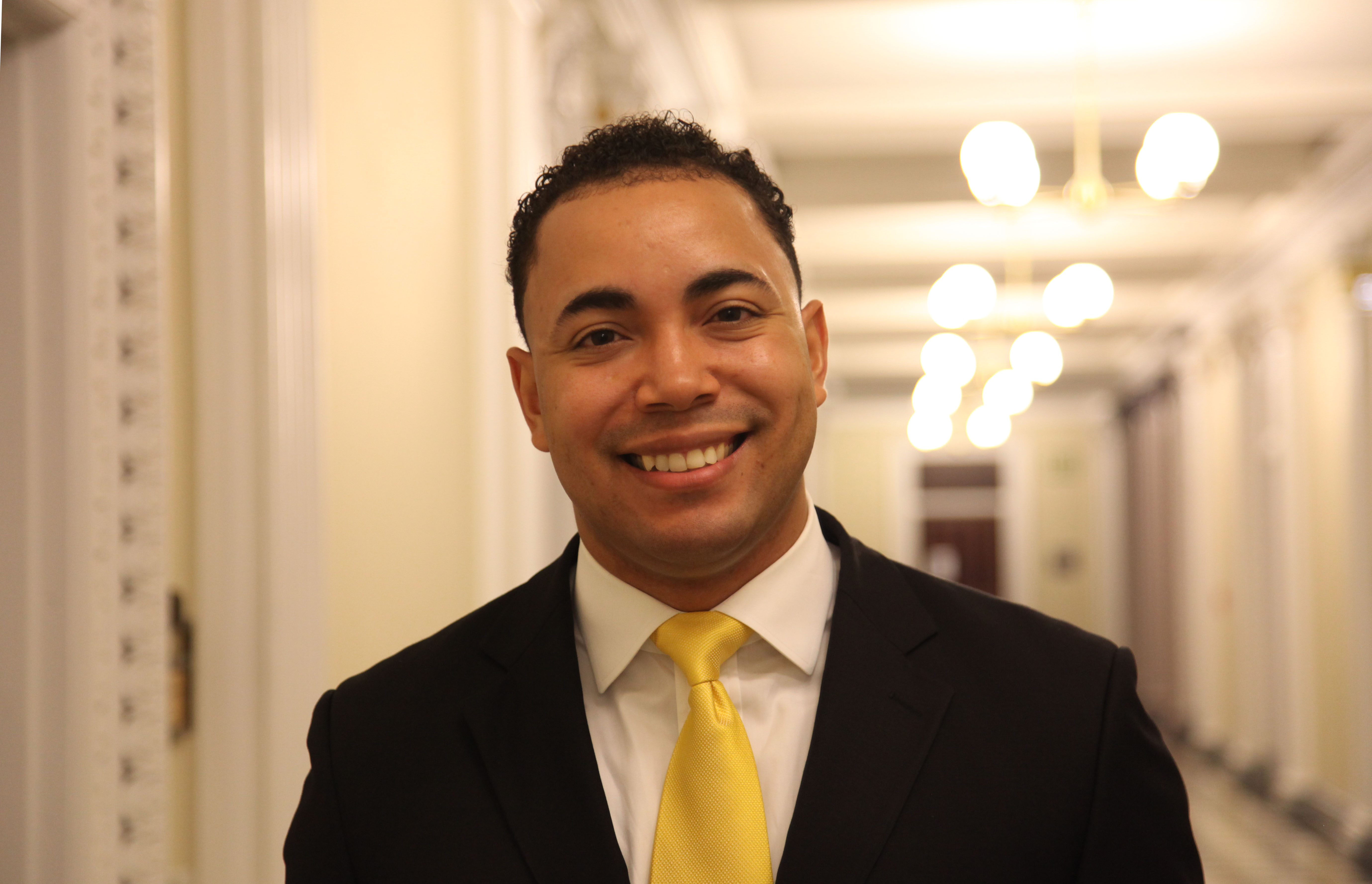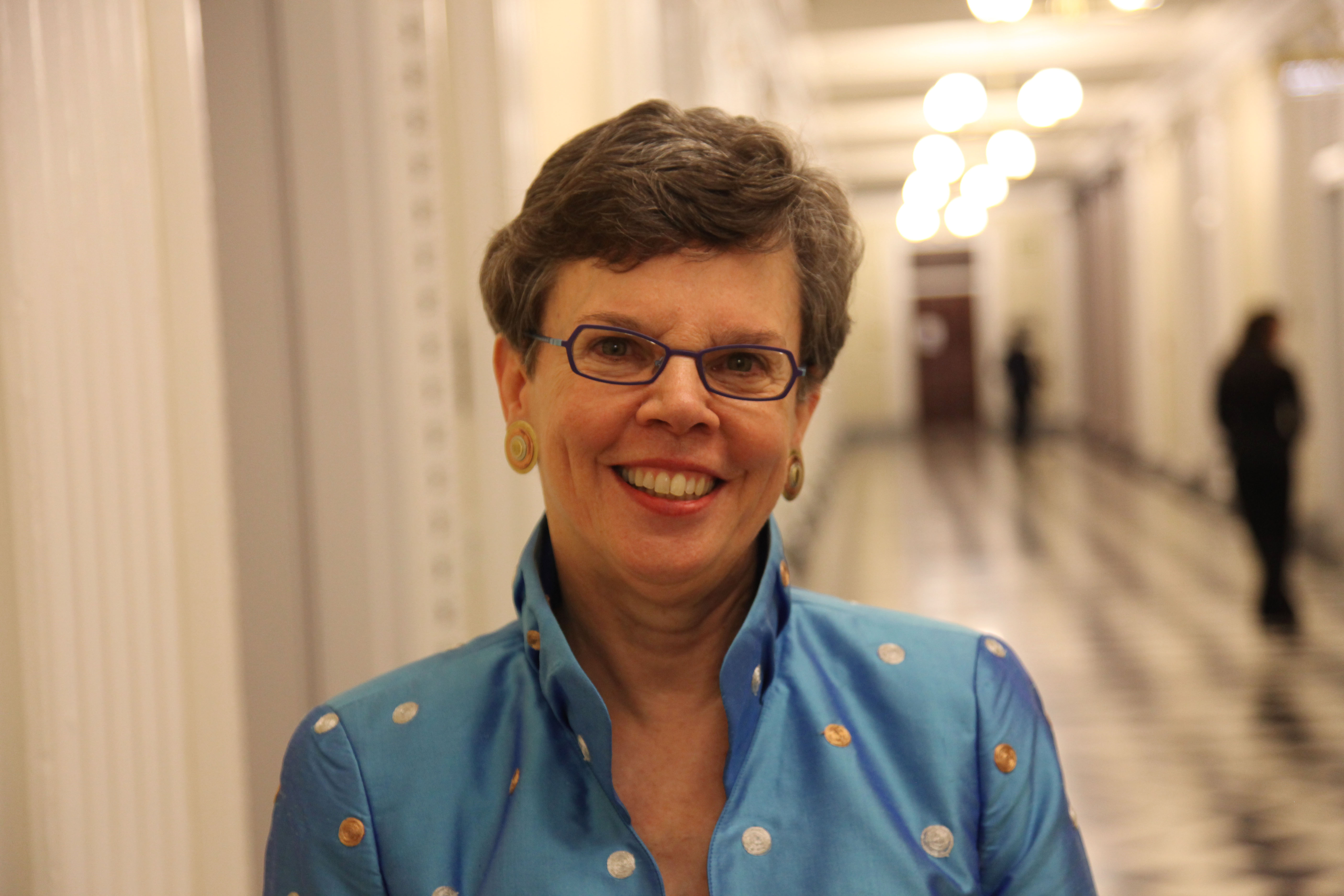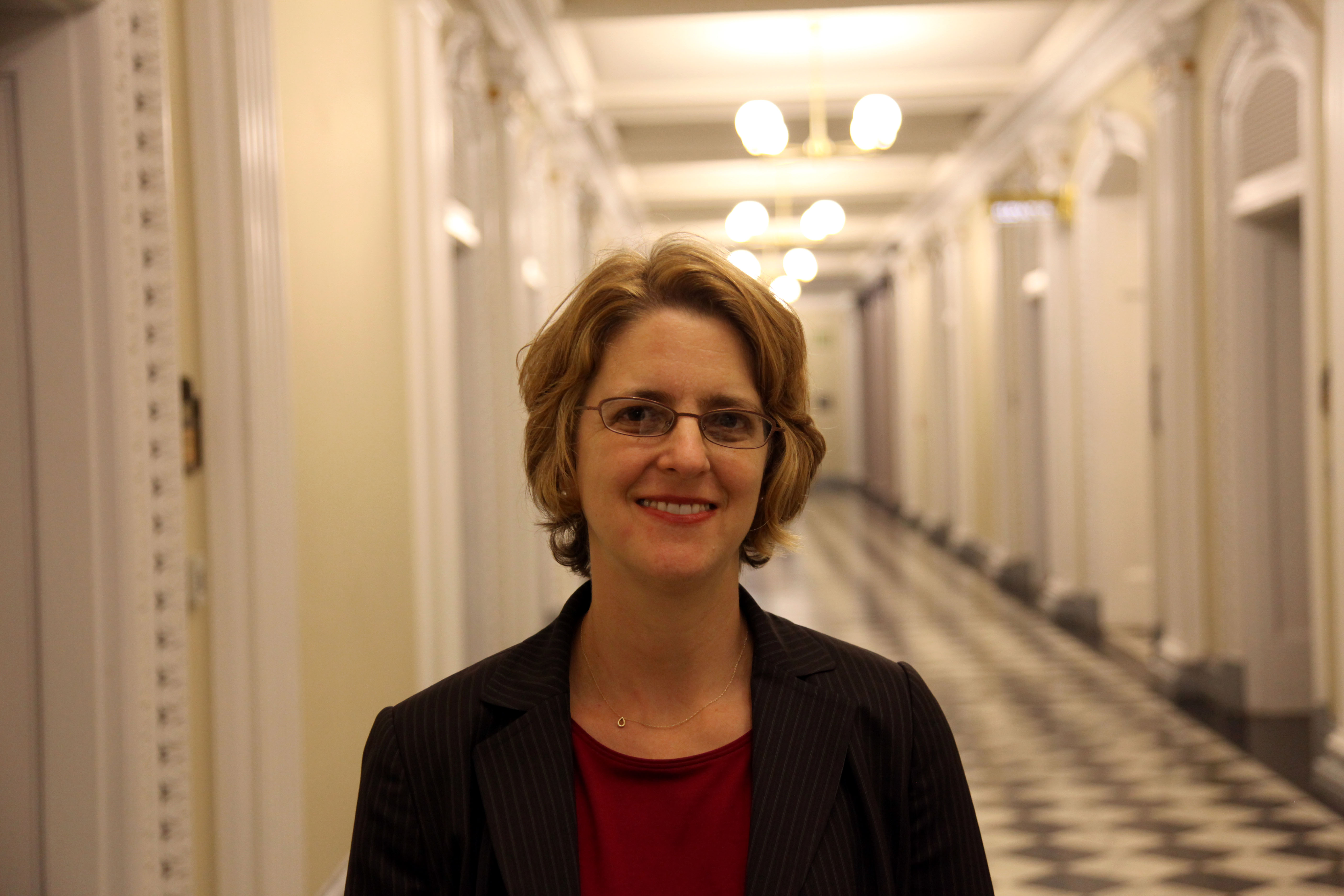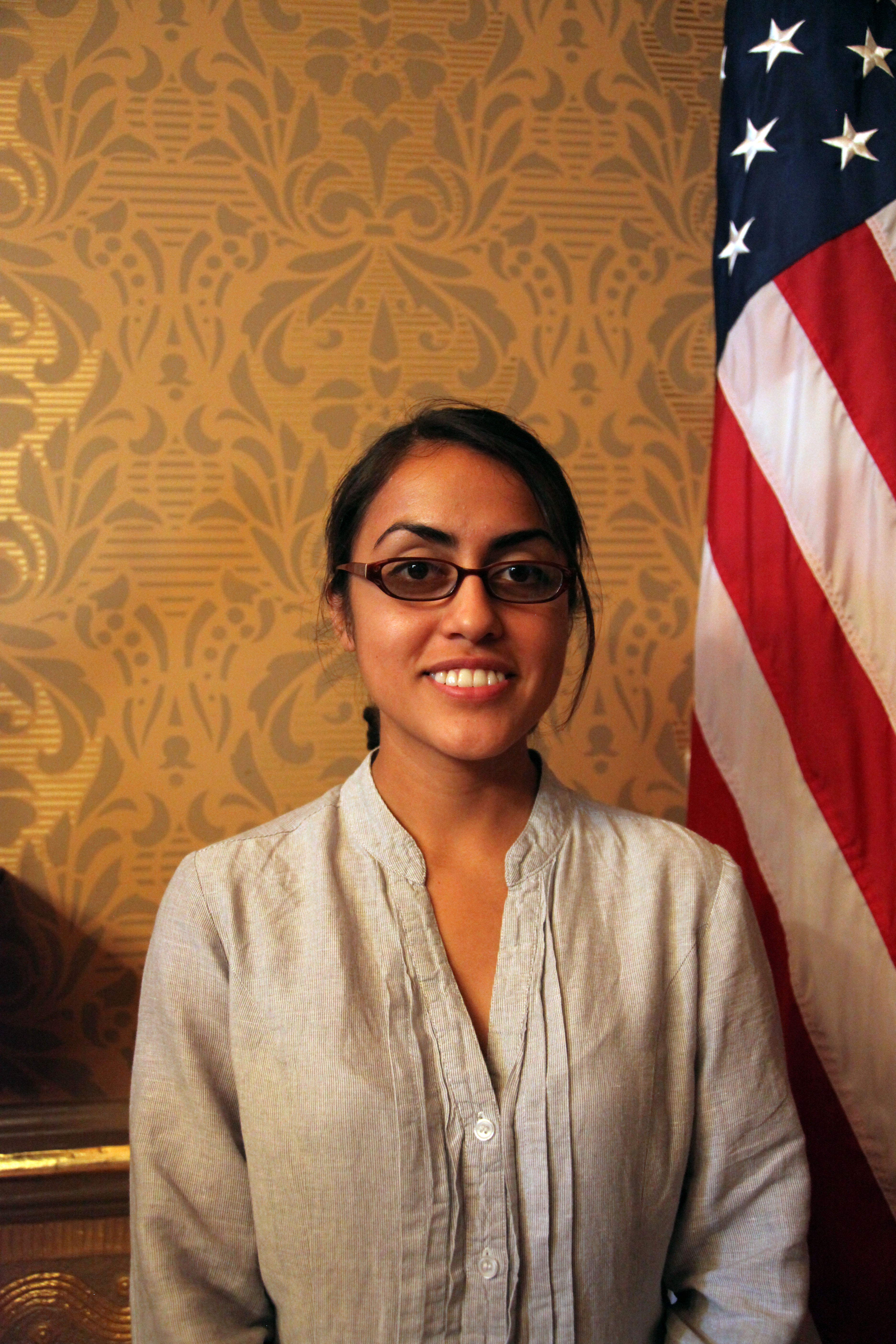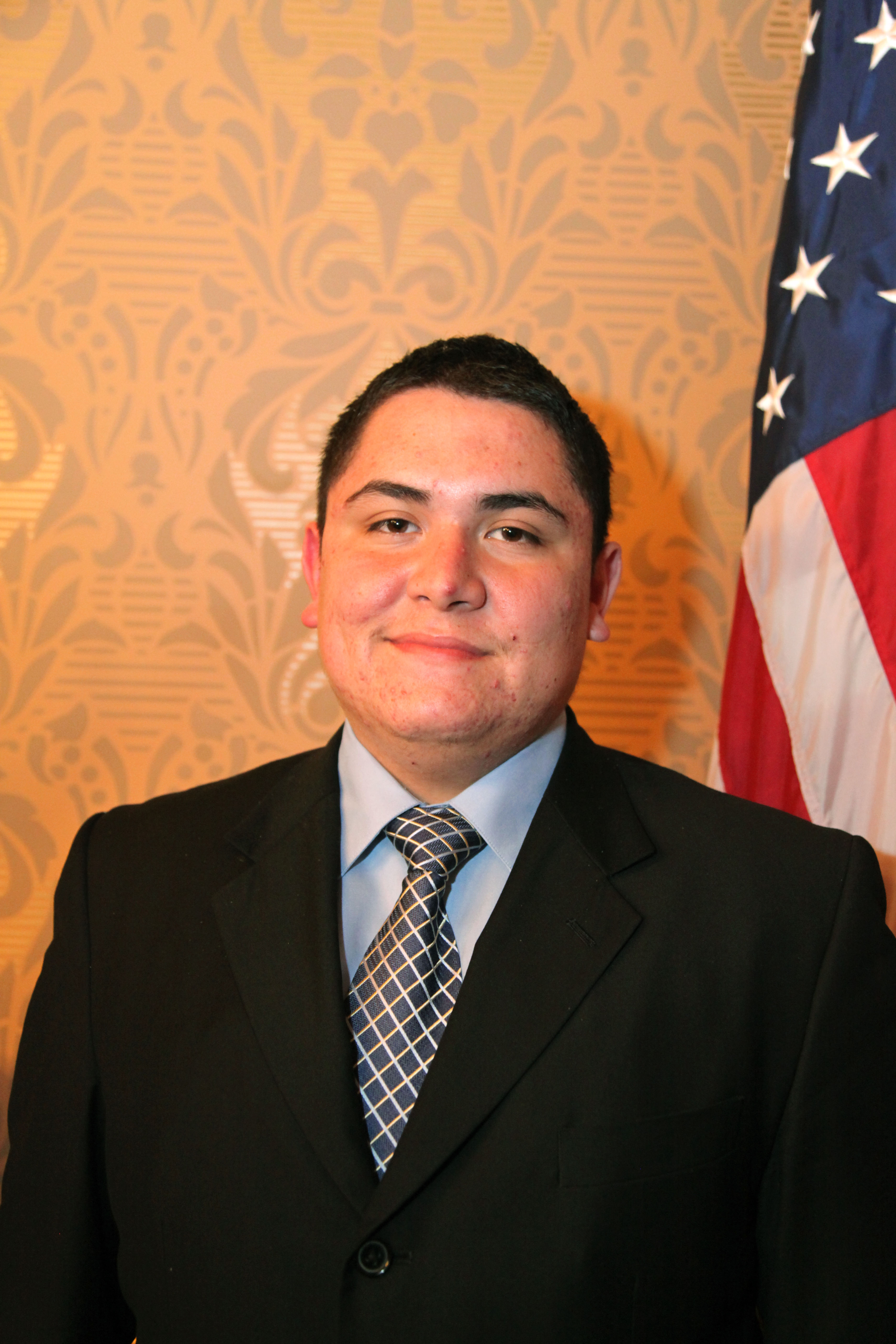Champions of Change Blog
Blueprint for Justice for All: All Hands on Deck
Posted by on October 21, 2011 at 5:40 PM EDTEd. Note: Champions of Change is a weekly initiative to highlight Americans who are making an impact in their communities and helping our country rise to meet the many challenges of the 21st century.
On Thursday, October 13, 2011, I had the tremendous honor and privilege of being recognized as a “Champion of Change” and served on a panel alongside advocates who have devoted their lives to serving the underserved in our country. During the panel law students from across the nation posed well informed questions regarding America’s justice gap. Although each question demanded its own response, one of the themes that emerged is that we need all hands on deck if America is going to fulfill her promise of justice for all. A starting point for that ‘all hands on deck’ blueprint is below.
Remove Barriers that Force our Legal Aid Attorneys to Work Inefficiently:
Legal services organizations that receive funding from the Legal Services Corporation are restricted from bringing class-actions or using their expertise to influence legislators to vote for policies that help our communities (lobbying). Those two tools are the only way to create the systemic change that our communities need. Without them, legal aid attorneys are forced to represent one client at a time. Not only is that an inefficient use of resources, it does not produce the larger scale changes that justice warrants and our communities need. If Congress amends the LSC appropriations rider from 1996, these restrictions can be removed at no cost and our communities will immediately have greater access to justice.Create the Expectation for Law Students to Learn by Doing:
Every law school should require their students to participate in one of the school’s clinics, practicum options or externships so that students can help meet unmet legal needs while honing their legal skills. On the extra-curricular level, schools should require a minimum of 30 hours of public service (10 hours a year) so that students can get more insight into the struggles that our communities endure and, hopefully, cultivate an ethic of service that will stay with them throughout their legal career.Learn more aboutAdvancing Equality for All Americans through Access to Justice
Posted by on October 21, 2011 at 3:31 PM EDTEd. Note: Champions of Change is a weekly initiative to highlight Americans who are making an impact in their communities and helping our country rise to meet the many challenges of the 21st century.
I was honored to be a part of the Champions of Change and join a discussion at the White House with other public interest lawyers who have dedicated their lives to closing the justice gap in America. Our discussion was wide-ranging and fruitful, focusing on the role of the legal profession in shaping political discourse and public policy in our nation.
One issue that often strikes me while discussing these issues is that it has been more than half a century since the civil rights movement and our work is not yet done.
During the civil rights movement, a generation of lawyers and advocates came to Mississippi from across America to lend their time and talent to the heroic struggle for equality. It made an indelible impact on our nation’s laws, politics and culture. We have become a more fair and just nation because of it.
But the truth is, while Mississippi was at the heart of the movement, its promises were never fully realized. Mississippi remains a state where racism and inequality are a fact of life. It is still mired in poverty and registers at the bottom of nearly every national measure of well-being. This is the reason why the Mississippi Center for Justice was created as a nonprofit, public interest law firm. And it's the reason I continue our work today.
Learn more aboutHolding Our Nation to Its Promise
Posted by on October 21, 2011 at 2:33 PM EDTEd. Note: Champions of Change is a weekly initiative to highlight Americans who are making an impact in their communities and helping our country rise to meet the many challenges of the 21st century.
On October 13, Attorney General Eric Holder recognized me as a Champion of Change for helping low-income people get their day in court. Of course, the real heroes are the people who fight daily in court to protect their lives and their families, despite an inability to find a lawyer, language barriers, and other obstacles. Here are two of their stories.
Charles Guider was late making a mortgage payment after his mother died. When he tried to pay, none of the banks or mortgage servicers that had bought and sold the mortgage over the years would take the money. One of them filed for foreclosure. He’s still in his home today because his civil legal aid lawyer persuaded the lender to accept the money and drop the foreclosure.
Charles is one of the lucky ones. Record numbers of people are turning to the courts for help dealing with the effects of the financial crisis on their lives, including foreclosure, eviction, unjust denial of subsistence benefits, and domestic violence. The vast majority cannot afford a lawyer and cannot find one to help them for free. Nonetheless, the House of Representatives is pushing for a 27% cut in funding for the Legal Services Corporation, which provides lawyers for low-income families needing legal help. To spur discussion about the need for civil legal aid, my colleagues and I produced a series of short videos telling the stories of Charles and other homeowners. Please watch them and join us in the push for civil legal aid funding.
Maythe Ramirez tried to warn the judge in her child custody case that her husband had beaten her and might harm the children. But Ms. Ramirez speaks Spanish, and there was no interpreter in the courtroom. She later told a New York Times reporter, “It is really as if you are doing nothing in court, standing still and not being able to explain what’s really happening.”
Ms. Ramirez had the misfortune to be in court in California, a state that provides interpreters for some court cases but not others. But her story is prompting change. Colorado, Ohio, Pennsylvania and Utah are among the states that have vastly improved their court interpreter programs in the past few years. And the American Bar Association is developing a historic set of standards for language access in courts, which will help the courts educate legislators and others about the need to fund this important aspect of access to the courts.
I have spent over a decade building a national program that uses advocacy, policy analysis, scholarship, public education and litigation to ensure that the justice system works when low-income communities need it. When I hear Charles’s and Maythe’s stories, I know our work is far from over. I am proud to have the opportunity to work with my fellow Champions of Change to hold our nation to its promise of “equal justice under law.”
Laura K. Abel is Acting Director of the Justice Program at the Brennan Center for Justice at New York University School of Law.
Learn more about EducationChampions of Change: Access to Justice Initiative
Posted by on October 18, 2011 at 5:48 PM EDTEd. Note: Champions of Change is a weekly initiative to highlight Americans who are making an impact in their communities and helping our country rise to meet the many challenges of the 21st century.
The U.S. Department of Justice Access to Justice Initiative was honored to join with the White House Office of Public Engagement on October 13, 2011 in co-sponsoring President Obama’s Champions of Change event, to celebrate the 16 courageous and creative advocates who dedicate their lives to closing the justice gap in America.
We’re overwhelmed by grateful messages for the inspiration the Champions provided to the public-spirited law students at 118 law schools in 42 states and the District of Columbia who watched the event via live-feed. And we want to thank the deans, professors, public interest student leaders, and Pro Bono Directors who emceed these watching events in law school classrooms and moot courtrooms across the country. We aim to continue this historic national conversation among the Champions, law students and faculty, public service lawyers, Attorney General Eric Holder and the Access to Justice Initiative, and invite you to join in. We’re hoping the discussion will reverberate and expand.
You might start by watching the video version of the October 13 event, and then reading the Champions’ inspirational stories, posted at www.whitehouse.gov/Champions. We also hope you will read about what law schools are doing to expand access to justice for low-income communities and motivate students to add their talents to the effort to secure basic rights for all Americans. Over the next two weeks, we will roll out on the White House Blog postings from the 118 participating schools that describe what they do to support a public service ethic in every student, and any new public service opportunities created for this academic year.
Please join the White House and Department of Justice in thanking the 16 individuals listed below for being Champions of Change in their communities, and the impressive list of law schools that hosted watching events on October 13, 2011.
Mark B. Childress is Senior Counselor for the U.S. Department of Justice Access to Justice Initiative.
Learn more about Civil RightsMaking Change, One Child at a Time
Posted by on October 17, 2011 at 5:50 PM EDTEd. Note: Champions of Change is a weekly initiative to highlight Americans who are making an impact in their communities and helping our country rise to meet the many challenges of the 21st century.
I am the daughter of Mexican immigrants, and was raised in the Mission District, San Francisco’s Latino neighborhood. I grew up attending the local public schools that, sadly, lacked many resources. Thanks to the guidance of First Graduate, a non-profit that helps students become first-generation college graduates, I was able to attend an excellent private high school. I was stunned and pained by the tremendous disparities I observed between the education I received there, and the education my working class peers and I had obtained in the Mission. I arrived being academically far behind my classmates, so my eventual admission to Harvard College represented a very meaningful accomplishment to me. I decided to devote my career to helping other low-income students obtain the quality education they need and deserve. Public education can and should become a means to improving the life of every individual and I believe it truly is the key to moving our nation forward.
I aspire to become a leader in education, and I am committed to acquiring a comprehensive, grass-roots understanding of public education. I believe the best kind of learning happens through the provision of services to people in need, which allows both parties to benefit and grow together. I have therefore served as a summer school teacher in San Francisco, teaching Humanities to eighth and ninth grade students from low-income families, and given presentations on the college admissions process to middle schools and high schools across the city. A strong believer in the value of learning across cultures, I have also been a mentor in a program for Native American youth, and a literacy and career coach in South Africa. During my semester abroad in Namibia, I interned at a school for orphans and vulnerable children called Hope Initiatives, where I taught students between the ages of two and twenty about a wide range of subjects including History, Math, Science, English and Health Education. My students have taught me many invaluable lessons - in particular lessons about resourcefulness and resilience. I have also learned that teaching is one of the most essential and most demanding jobs anyone can do, and I look forward to a day when our society will treat the teaching profession with all the respect and admiration it merits.
Learn more about EducationRaising an Effective Voice in Representing Our Communities
Posted by on October 13, 2011 at 6:46 PM EDTEd. Note: Champions of Change is a weekly initiative to highlight Americans who are making an impact in their communities and helping our country rise to meet the many challenges of the 21st century.
My visit to the White House proved to be one of the most rewarding experiences in my life. Recently, I was honored as a White House Champion of change. Being able to be part of an inspiring and empowering discussion amongst other community leaders, and White House administrators, proved to me that there are others committed progressing this great nation forward.
After the initial discussion, it became obvious that to operate on a national framework, it all begins at the local level-in our communities. As leaders, we have to understand and know the people who comprise where we live, serve the interests of the people are who in most need, and execute an appropriate plan of action.
As a student at the University of Southern California, and resident of Los Angeles, some my passions include: immigration, education policy reform and social change. Currently I am involved in an organization on campus known as Chicanos for Progressive Education (CPE). The high schools CPE visits are neighboring schools in the South Los Angeles area that have low retention rates, are overcrowded and underfunded. These are not just characteristics of a school, but walls that prevent students from having access to the necessary resources that will encourage them to succeed. We foster the idea of a higher education whether it be: Community College, Cal-State schools, UC's or private institutions.
Also, this spring I was able to take part in the annual Sustainability Summit in partnership with the Los Angeles Business Council where the USC program for Environmental and Regional Equity headed by Dr. Manuel Pastor presented on Multifamily Rooftop Solar and Social Equity in Los Angeles. Among the issues of discussion were if solar investment in multi-family housing could occur in distressed neighborhoods. The data showed that many low-income renters currently live in high-solar potential neighborhoods and could relieve the cost of utilities significantly. It has been all part of an effort in creating a market for many of the residents of Los Angeles, especially in lower-income communities. Lastly, I will present my senior honors thesis next spring in American Studies and Ethnicity on the case study of Gardeners in Los Angeles.
Being the son of immigrant parents from Mexico, and having my father be part of this labor force-I am interested in looking at undocumented healthcare in Los Angeles, and the different modes which are sought after for quality care here in Los Angeles. Also, social networks of gardeners, entrepreneurship, and generational progress between gardeners and their children. Through my research I hope it may to bring to light many of the negative misconceptions of our nation's immigrants. As a White House Champion of Change, it has made me believe that we all, as Americans, have the potential to be an effective voice in representing our residents and communities equally, and pass down knowledge to the future generations of America.
David Horacio Hernandez is a junior at the University of Southern California and a member of Chicanos for Progressive Education, an organization that encourages students in inner city schools to pursue higher education.
- &lsaquo previous
- …
- 151
- 152
- 153
- 154
- 155
- 156
- 157
- 158
- 159
- …
- next &rsaquo
White House Blogs
- The White House Blog
- Middle Class Task Force
- Council of Economic Advisers
- Council on Environmental Quality
- Council on Women and Girls
- Office of Intergovernmental Affairs
- Office of Management and Budget
- Office of Public Engagement
- Office of Science & Tech Policy
- Office of Urban Affairs
- Open Government
- Faith and Neighborhood Partnerships
- Social Innovation and Civic Participation
- US Trade Representative
- Office National Drug Control Policy
categories
- AIDS Policy
- Alaska
- Blueprint for an America Built to Last
- Budget
- Civil Rights
- Defense
- Disabilities
- Economy
- Education
- Energy and Environment
- Equal Pay
- Ethics
- Faith Based
- Fiscal Responsibility
- Foreign Policy
- Grab Bag
- Health Care
- Homeland Security
- Immigration
- Innovation Fellows
- Inside the White House
- Middle Class Security
- Open Government
- Poverty
- Rural
- Seniors and Social Security
- Service
- Social Innovation
- State of the Union
- Taxes
- Technology
- Urban Policy
- Veterans
- Violence Prevention
- White House Internships
- Women
- Working Families
- Additional Issues

